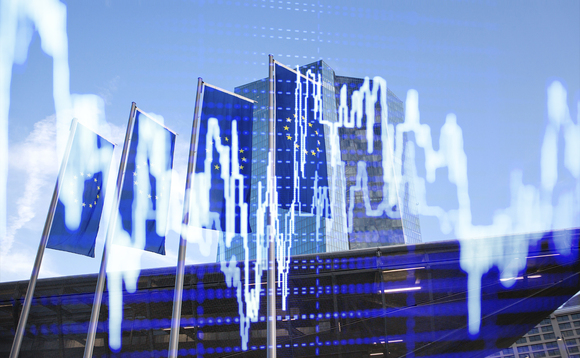Europe's bond market is on track for its worst month since records began, as the market for high-grade government and corporate debt fell 5.3% in the month to Tuesday 30 August.
The sell-off was widespread across the bloc, with declines in UK, German and French bonds as investors prepared for central banks to toughen its stance on rates.
This was the biggest drop in the Bloomberg Pan-European Aggregate Total Return index since it was established in 1999, driven by anxious investor sentiment over further central bank action off the back of surging prices, spurred by Russia's war in Ukraine.
Annual inflation across Europe rose to 9.1% this month, according to figures published yesterday (Wednesday 31 August) by Eurostat. Europe posted 8.9% inflation in July, up from 8.6% in June.
Energy had the highest annual rate increase at 38.3%, compared to 39.6% in July, followed by food, alcohol & tobacco at 10.6%, up from 9.8% in July.
Dovish ECB hikes rates for first time since eurozone debt crisis
The data largely beat out economist expectations and the move is expected to pressure the ECB to accelerate the pace of rate rises at its next meeting in September. The central bank raised rates for the first time in more than a decade last month.
Markets are pricing in ECB borrowing costs at 2% by March 2023, according to Bloomberg data, based on pricing in money markets.
Steep borrowing costs have exacerbated fears over a recession in Europe and in the UK next year. The UK's 10-year gilt yield climbed from 1.8% at the start of this month to 2.8% on Wednesday 31 August.
The yield on Germany's benchmark 10-year Bund rose by more than 0.7 percentage points to 1.54% in August, its biggest monthly rise since 1990.
Silvia Dall'Angelo, senior economist at Federated Hermes, said: "As future gas prices have increased significantly in recent months, euro zone headline inflation will remain in an upward trend in the short term and will likely peak at about 10% in Q4 of this year.
"Volatility in gas prices (also feeding into electricity prices) will affect the exact timing and extent of the inflation peak. Indeed, Russian gas provision is likely to be severely disrupted in coming months, with significant risks of a complete halt, while suggestions of EU interventions in electricity markets should provide a cap to gas prices."





